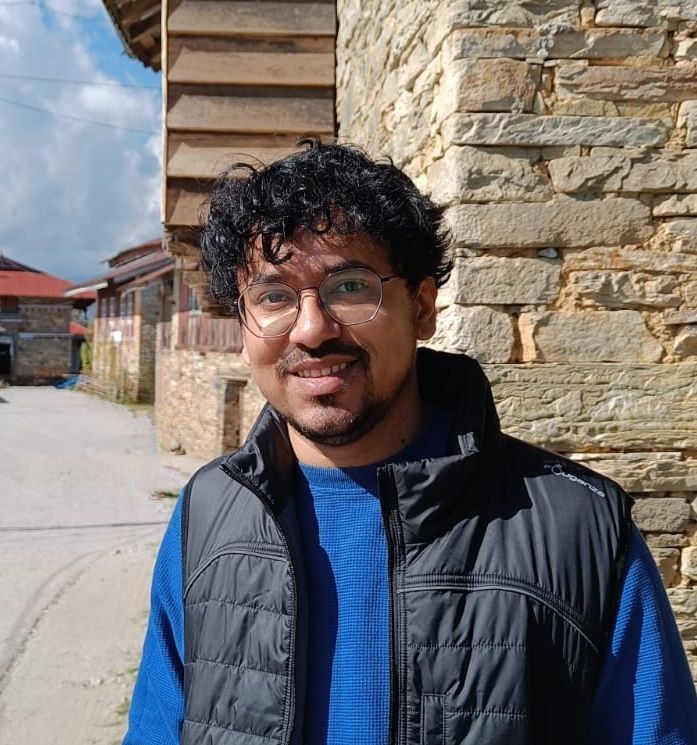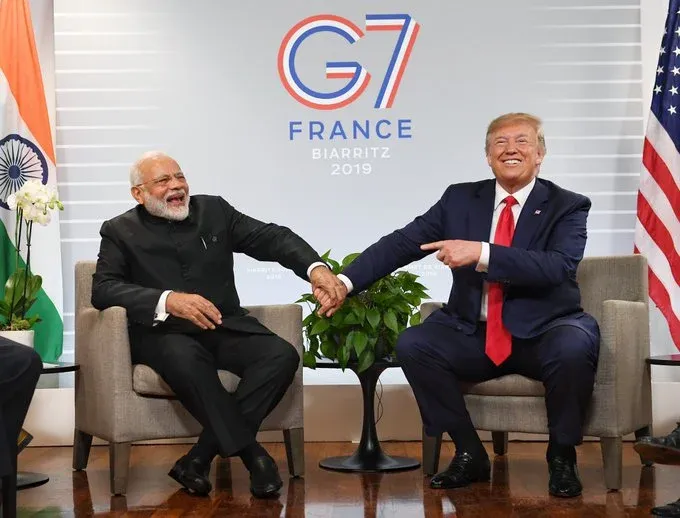Business News
PM Modi-Donald Trump meeting: Will 'close rapport' with US President translate into policy wins?

5 min read | Updated on February 12, 2025, 19:25 IST
SUMMARY
Prime Minister Narendra Modi and US President Donald Trump are expected to discuss reducing trade barriers, strengthening strategic alliances, and expanding technology and defence collaborations.

Prime Minister Narendra Modi and US President Donald Trump. (X/@narendramodi)
Prime Minister Narendra Modi is set to embark on a two-day working visit to the United States starting Wednesday, where he will meet President Donald Trump for high-stakes talks aimed at deepening the strategic partnership between the two nations. This will be Modi's first visit since Trump’s inauguration for his second presidential term on January 20, making India one of the first countries to engage directly with the new administration.
The meeting is expected to cover a broad spectrum of issues, including trade, defence cooperation, technology, counterterrorism, and Indo-Pacific security. The bilateral discussions will take place in both restricted and delegation-level formats.
Trump’s tariff weapon
Modi’s visit comes amid a complex backdrop of global economic tensions, including escalating trade disputes triggered by the Trump administration's recent decision to impose a flat 25% tariff on steel and aluminum imports. The move has rattled markets and raised fears of a potential multi-front trade war. For India, which faces its own economic challenges, this visit offers an opportunity to recalibrate trade ties and mitigate potential fallout.
In a departure statement ahead of the US visit, Modi expressed optimism about his meeting with Donald Trump, referring to him as "my friend" and highlighting their "very warm" collaboration during Trump’s first term.
"This visit will be an opportunity to build upon the successes of our collaboration in his first term and develop an agenda to further elevate and deepen our partnership, including in the areas of technology, trade, defence, energy, and supply chain resilience," Modi said.
In a recent briefing, foreign secretary Vikram Misri emphasised the visit’s strategic importance, saying it will “give further direction and impetus to this very important partnership.”
"There is an obvious convergence of interests between the two countries in a number of areas -- trade, investment, technology, defence cooperation, counterterrorism, Indo-Pacific security, and of course, people-to-people relations," Misri had said.
Trade
Trade is expected to dominate the agenda, with both leaders bringing a set of demands to the negotiating table. The US administration has signalled its intent to address the $46 billion trade deficit with India, and Trump may push for further tariff reductions on American goods.
India has already taken preemptive steps, including lowering some tariffs in Union Budget 2025-26 and taking back 104 undocumented Indian immigrants.
Reports suggest that Modi will propose additional tariff cuts and increased imports of American energy and defence products to ease trade tensions. As the world’s fourth-largest importer of liquefied natural gas (LNG), India may seek to expand LNG purchases from the US, leveraging recent policy shifts that favour American energy exports.
India is expected to negotiate deals related to the co-production of combat vehicles, including ongoing discussions with US defence contractor General Dynamics regarding Stryker armoured vehicles.
Immigration
Immigration issues are likely to be a sensitive topic, especially following the recent deportation of undocumented Indian immigrants from the US. Delhi is expected to raise concerns about their treatment, while Trump may press for India to accept more deportees, a politically delicate issue for Modi’s government.
Modi is likely to meet with top US business leaders, including Tesla and SpaceX CEO Elon Musk, to discuss potential investments in India. He may also seek assurances on the continuation of the H-1B visa program, which is vital for India’s tech workforce in the US.
Energy
Indo-Pacific strategy
The Indo-Pacific region, a cornerstone of both nations’ strategic interests, will likely provide common ground amid these complex discussions. Trump remains a strong supporter of the Quad alliance—comprising the US, India, Japan, and Australia—which aims to counterbalance China’s regional ambitions. Modi is expected to invite Trump to the upcoming Quad summit in Delhi.
Personal chemistry
While the agenda is packed with substantive issues, the personal rapport between Modi and Trump could play a key role in shaping the outcomes. Their relationship, forged through years of public appearances and mutual admiration, may help smooth over contentious topics and foster an atmosphere conducive to negotiation.
“There has been a very close rapport between President Trump and Prime Minister Modi dating back to President Trump's first term,” Misri said.
During Trump's first term, both leaders appeared together at the 2019 Howdy Modi event in Houston, followed by the US President's grand reception in February 2020 in Ahmedabad.
Misri said the two sides are expected to adopt a joint statement at the end of the prime minister's visit.
By signing up you agree to Upstox’s Terms & Conditions
About The Author
Next Story

